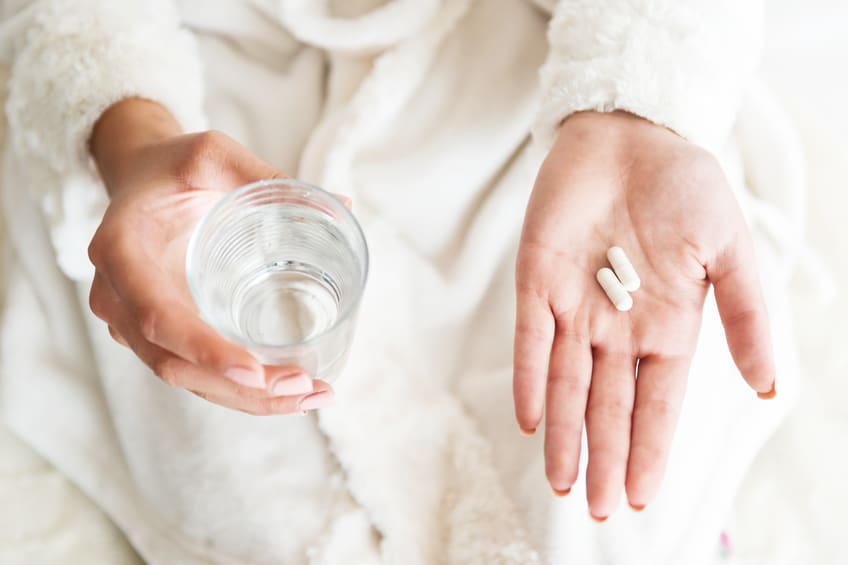The long-held belief that cranberry juice can prevent urinary tract infections just got poured down the drain. A new Yale University study found that drinking cranberry juice is no more effective than a placebo.1
Urinary tract infections (UTIs) are most common in women, especially the elderly in nursing homes. They often fight off one UTI only to get others in quick succession.
UTIs are caused by bacteria overwhelming the body’s natural defenses in the urinary tract. The most common symptoms are a burning sensation during urination, back or stomach pain, and a frequent urge to urinate. Untreated UTIs can spread to the kidneys and lead to sepsis, or blood poisoning. This is a potentially deadly condition.2
Antibiotics can quickly kill off a UTI. But they often have side effects. They destroy beneficial gut bacteria that are important for overall health. That’s why many sufferers looked to a natural remedy like cranberry juice.
Yale researchers randomly assigned 147 elderly women to take daily oral cranberry capsules or a placebo for one year. Each capsule contained the equivalent of 20 ounces of cranberry juice.
Over the course of the year there was no difference in UTI incidence between women taking cranberry capsules and those taking a placebo. And those who took cranberry supplements did not have lower levels of infection-causing bacteria in their urinary tracts.
Dr. Manisha Juthani is an associate professor at the Yale University School of Medicine. She is lead author of study.
Dr. Juthani said: “For women who enjoy eating cranberry products or drinking cranberry juice, I encourage them to continue doing so.” But, she added, using cranberry products to prevent UTIs “does not seem worthwhile.”
Healthy Habits That Prevent UTIs
Dr. Jill Rabin is co-chief of the division of ambulatory care at Women’s Health Programs-PCAP Services at Northwell Health in New Hyde Park, N.Y.
She said the study shows that women “can drink all the cranberry juice in the world, but if they have an infection, it’s not going to treat it.”
The most common cause of UTIs is poor bathroom hygiene. Improper wiping can drag bacteria into the urinary tract, said Dr. Rabin. Sex can also transport bacteria into a woman’s urinary tract. This means regular washing is important, she said.3
Hydration is another important preventive measure. Drinking plenty of fluids helps flush out bacteria. A general rule of thumb is to drink at least eight 8-ounce glasses of water per day to prevent UTIs.4
4 Natural Remedies for UTIs
Although cranberry juice does not work, there are other lesser-known natural solutions shown to fight UTIs:[v]
- D-Mannose: This natural sugar is found in fruits such as apples and blueberries. It attaches to bacteria, preventing them from sticking to urinary tract walls. The bacteria are then flushed out during urination. It is particularly effective at preventing UTIs caused by E. coli. It has no side effects and is safe for the elderly. A typical dose is one 500 mg capsule a day.
- Lauricidin. This supplement is antimicrobial. And it won’t disrupt beneficial bacteria in the gut. It works by attacking invading bacteria’s cell membrane. This makes it easier for the immune system to destroy the infection. It usually comes in a powder. One teaspoon twice a day is recommended.
- Nattokinase. This natural probiotic eliminates bacteria’s ability to attach to the urinary tract. Check with your doctor before taking it if you are prone to bleeding or taking drugs such as Coumadin or aspirin. Nattokinase can increase their potency. The recommended dosage is 100-300 mg a day.
- Apolactoferrin (or lactoferrin). A study of mice found that apolactoferrin reduces E. coli in the urinary tract within 24 hours of taking. It is recommended for those with recurring UTIs. A typical dose is 300 mg daily.
There are other simple ways you can keep your immune system strong to fight UTIs and other contagious diseases. Discover them in our special report, Bulletproof Your Immunity: Easy Ways to Protect Your Health.
Get all the details HERE.
In Good Health,

Angela Salerno
Executive Director, INH Health Watch
Like this Article? Forward this article here or Share on Facebook.
References:
1http://www.cnn.com/2016/10/27/health/cranberry-urinary-tract-infection/
2http://www.sepsis.org/sepsis-and/urinary-tract-infections/
3http://www.webmd.com/women/guide/your-guide-urinary-tract-infections#1
4https://www.theseniorlist.com/2014/08/how-much-water-do-i-need-to-drink/
5www.cnn.com/2016/10/27/health/cranberry-urinary-tract-infection/

